Safaa Kumari - BBC 100 Woman - on a knowledge-sharing road trip
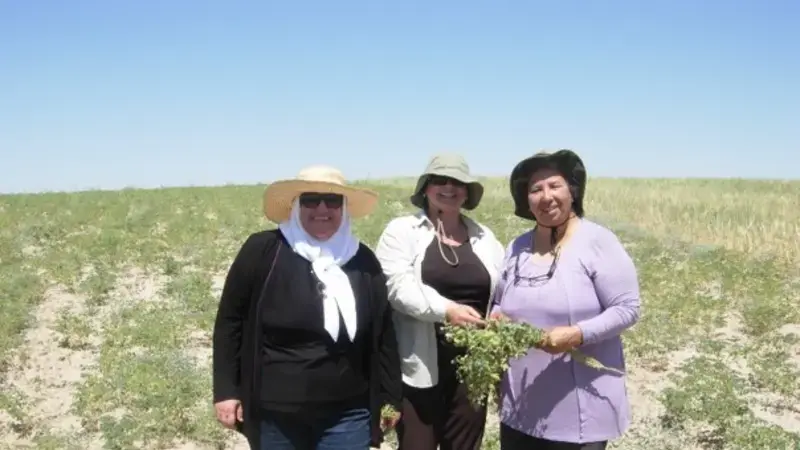
Dr. Safaa Kumari, ICARDA's Virologist and Seed Health Laboratory Manager, and BBC 100 Woman 2020, recently completed an extensive knowledge-sharing tour. Safaa, students, and researchers from academic institutions across the region discussed legume and cereal viral diseases and how to manage and detect major quarantine seed-borne pests (diseases and insects) of legume and cereal crops. Safaa's presentations attracted hundreds of participants, more than half of them women, and she represents a prime example of how women and men in the region can become tomorrow's experts in that field of expertise.
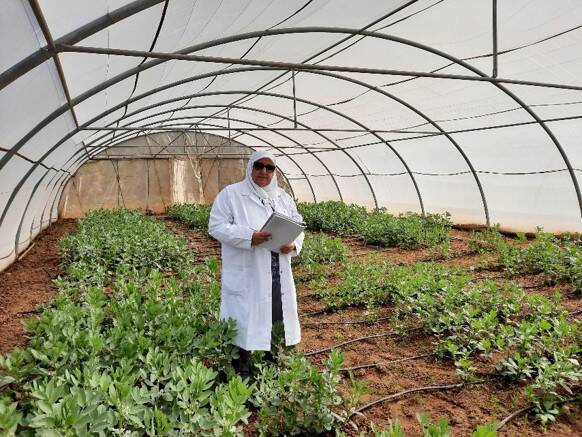
In Aleppo, Syria, Dr. Kumari's homeland, she taught the trainees, who have different backgrounds in several agricultural science fields, how to test seeds in laboratories and explained how diseases transmit between plants, with a focus on a vital staple crop in the region: wheat.
"If infected seeds are introduced into a field, the disease can develop and spread quickly to healthy plants by insects and wind or even rain splashes. Without control, a healthy crop could become completely infected by the end of the cropping season, causing huge losses to farmers and the country as a whole," Kumari explains.
She also trained participants on using low-cost, simple technologies for home use, such as tissue-blot immunoassay tests for virus detection. She introduced them to high-end technologies that detect diseases such as the polymerase chain reaction (PCR) tool, which allows specific target diseases to be identified and quantified, even when the concentration is very low. PCR is now a common and often indispensable technique used in medical diagnosis for a broad variety of applications such as detection and characterization of COVID-19 and its variants.
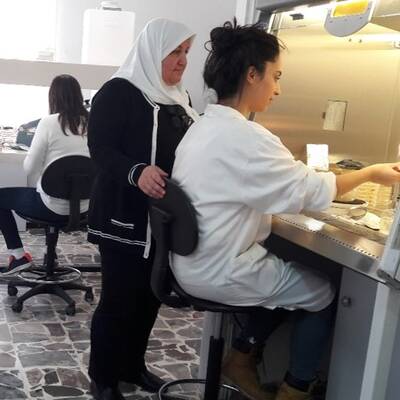
In Abu Dhabi, United Arab Emirates, Dr. Kumari gave a virtual lecture to more than 60 participants organized by the Abu Dhabi Agriculture and Food Safety Authority. She focused on seed-borne pests management and detection procedures. She highlighted the importance of ICARDA's Seed Health Unit's role in managing and controlling seed-borne pests (diseases and insects). At the same time, samples enter or exit ICARDA's gene bank.
Dr. Kumari explained that in the Seed Health Laboratory/unit at ICARDA’s Terbol Station (Beqaa Valley) in Lebanon, the seeds are thoroughly tested and controlled over a period of 15 to 20 days. She uses various health testing methods to identify and control seed-borne pests including fumigation and chemical treatments to destroy/eliminate any disease or any stage of the storage insects. ICARDA's genebank is currently home to 157,000 accessions free of seed-borne pests. No seed enters or exits the facility without thorough testing for either viral, fungal, or bacterial diseases in the seed health unit. If any seed-borne diseases are detected, the seed health unit incinerates the seeds immediately.
During her lectures, Dr. Kumari also emphasized that "using procedures of seed-borne pests management as a full package is a cornerstone for the safe exchange of germplasm. The development of effective detection methods will help in rapid and accurate detection of seed-borne pests."
Dr. Kumari's last stop was another virtual lecture led by the Khalifa International Date Palm Award and Agricultural Innovation (KAIDPAI), where she explained to around 120 experts and specialists, representing 19 countries, the importance of germplasm health in preventing the spread of pathogens and transboundary diseases, how we can conserve vital plant genetic materials, and their safe transportation between countries.
Dr. Kumari cited the example of wheat rust disease UG99 - short for Uganda 1999 - that ICARDA was instrumental in researching. UG99 had been responsible for tremendous economic losses across the country. Dr. Kumari explained that when transboundary diseases reach farmers' crops, they become immediately desperate and need a solution to end this destructive disease. But farmers lack the knowledge to help them detect or manage these diseases. After diagnosing the infected varieties, ICARDA in collaboration with the National Agricultural Research Institutions (NARS) develop the disease- and pest-resistant varieties.
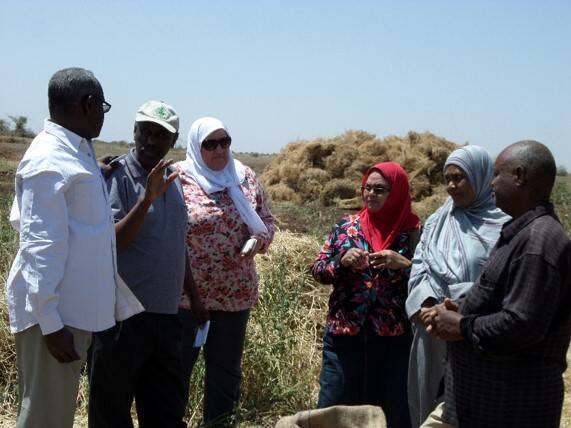
"The biggest problem is the safe movement of germplasm. A country might host a certain crop disease the crops and farmers had already adapted to. But it still represents a risk to other countries with crops and farmers without resistance or understanding, " Dr. Kumari explained. "It could spread faster and create massive destruction to crops as it entered the new, defenseless conditions."
ICARDA's goal is to build knowledge across all our projects by training tomorrow's experts. Our projects include training activities to ensure that our innovations are widely adopted and fully understood in the region.
"I love what I do. I get a thrill when I find a solution for a farmer devastated by a disease that infected their crops. I feel happiest when I offer such solutions to poor farmers in our region," Dr. Kumari explained.
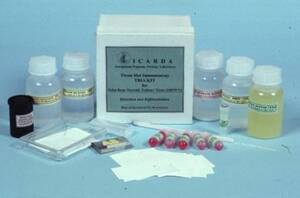
In Syria, ICARDA's former headquarters, ICARDA saved millions of dollars by producing antibodies against legume and cereal viruses, with Dr. Kumari one of the few able to produce them in the region. One ml of antibodies costs typically around 500-1000 euro in developed countries. But as climate change intensifies, higher temperatures tend to make crop diseases and pest-borne viruses more common. There is an urgent need for additional funding towards this area for research and the equipment needed for such a process to help more farming communities combat new and transboundary crop diseases.
